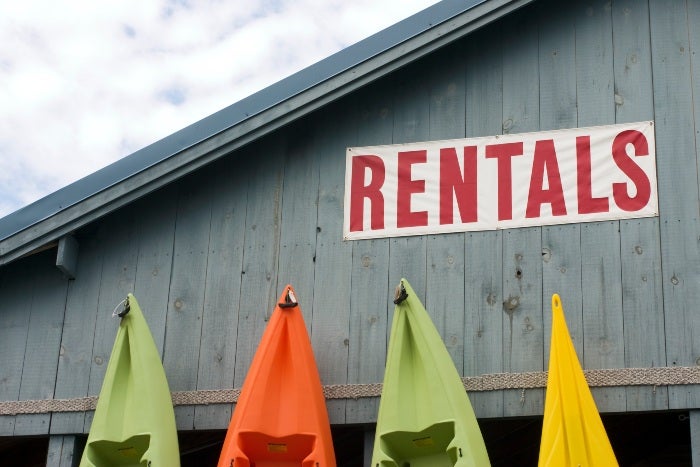Surfaces Where Custom Vinyl Lettering Works Best
Custom vinyl lettering has revolutionized how businesses in the Phoenix display their brand messaging. From storefront windows to fleet vehicles, the versatility of vinyl makes it an ideal choice for countless applications. However, not all surfaces are created equal regarding vinyl adhesion and longevity.
Understanding which surfaces work best with custom vinyl signage can save you time and money and ensure your investment delivers maximum impact. Let’s explore the optimal surfaces for vinyl lettering and share expert tips for flawless application.

Why Surface Selection Matters
The foundation of any successful vinyl custom signage project lies in proper surface selection. The wrong surface can lead to premature peeling, bubbling, or complete adhesive failure. Conversely, choosing the right surface ensures your custom vinyl window signage or wall graphics maintain their professional appearance for years to come.
Surface texture, material composition, and environmental conditions all play crucial roles in determining vinyl performance. Clean, smooth, non-porous surfaces typically provide the best adhesion, while heavily textured or chemically treated surfaces may require special preparation or alternative approaches.
Ideal Surfaces for Custom Vinyl Lettering
Glass Windows and Doors
Glass surfaces rank among the absolute best for custom vinyl window signage. The smooth, non-porous nature of glass provides excellent adhesion for vinyl materials. Glass offers superior results when creating storefront displays, office door graphics, or vehicle window decals.
Best practices for glass applications:
- Clean thoroughly with alcohol-based cleaners
- Remove all soap residue and lint
- Apply in temperatures between 65-75°F
- Use a squeegee to eliminate air bubbles
Metal Surfaces
Painted metal panels, aluminum siding, and steel surfaces work exceptionally well for vinyl lettering. These surfaces are common on commercial buildings, industrial equipment, and vehicle applications throughout the Phoenix.
Metal surfaces provide excellent durability and weather resistance, making them perfect for outdoor custom vinyl signage. The key is ensuring the metal surface is properly primed and painted, as raw metal can sometimes present adhesion challenges.
Plastic and Acrylic Materials
Modern plastic surfaces, including acrylic panels and high-grade vinyl substrates, offer excellent compatibility with vinyl lettering. These materials are frequently used for interior signage, trade show displays, and temporary promotional graphics.
Plastic surfaces are particularly valuable for vinyl wall signage custom applications where weight reduction is important or where drilling into walls isn’t feasible.
Painted Walls (Smooth Finish)
Smooth, painted drywall surfaces work well for interior vinyl applications. The key is ensuring the paint has fully cured (typically 30 days for latex paint) and that the surface is completely clean and free from texture.
Custom wall vinyl signage on painted surfaces creates stunning interior branding opportunities for offices, retail spaces, and reception areas. Consider using removable vinyl for rental properties or temporary installations.
Vehicle Surfaces
Modern automotive paints provide excellent adhesion for vinyl graphics. Vehicle wraps and lettering have become increasingly popular for mobile advertising in the Phoenix metro area.
The smooth curves and flat panels of most vehicles accommodate vinyl lettering beautifully, though complex curves may require heating during application to prevent wrinkles.
Surfaces to Approach with Caution
Heavily Textured Walls
While vinyl can adhere to textured surfaces, the results may be less durable and visually appealing. Heavy textures create air pockets and reduce the actual contact area between vinyl and surface.
If you must apply vinyl to textured walls, consider:
- Using heat during application to help the vinyl conform
- Selecting thicker, more flexible vinyl materials
- Applying extra pressure with squeegee tools
- Accepting shorter lifespan expectations
Brick and Masonry
Porous surfaces like brick, concrete block, and rough stone present significant challenges for vinyl adhesion. Their irregular surfaces and absorbent nature make long-term adhesion difficult.
Consider alternative mounting methods like standoff letters or painted signage for brick applications instead of direct vinyl application.
Low-Energy Surfaces
Some plastics and treated materials have low surface energy, making adhesion challenging. Surfaces like polyethylene, polypropylene, and Teflon-coated materials often require special primers or alternative adhesive systems.
Real-World Applications and Best Practices
Storefront Success Stories
Local Phoenix businesses have found tremendous success with custom vinyl window signage. Restaurants use frosted vinyl for privacy while maintaining branding visibility. Retail stores create seasonal promotions with temporary vinyl graphics that remove cleanly.
Fleet Vehicle Graphics
Construction companies and service providers throughout the Phoenix area rely on vehicle lettering for mobile advertising. The smooth painted surfaces of modern commercial vehicles provide excellent platforms for durable, professional-looking graphics.
Office Environment Enhancement
Custom wall vinyl signage transforms ordinary office spaces into branded environments. Conference rooms, reception areas, and hallways benefit from vinyl lettering that reinforces company culture and professionalism.
Professional Application Tips
Surface Preparation is Critical
Regardless of surface type, thorough cleaning is essential. Use appropriate cleaners for each material:
- Glass: Alcohol-based cleaners
- Metal: Degreasing agents followed by alcohol
- Painted surfaces: Mild detergent followed by alcohol rinse
- Plastic: Anti-static cleaners when appropriate
Environmental Considerations
Temperature and humidity significantly impact vinyl application success. Ideal conditions include:
- Temperature: 65-75°F
- Humidity: Less than 50%
- No direct sunlight during application
- Minimal air movement
Tool Selection Matters
Professional application requires proper tools:
- High-quality squeegees for bubble removal
- Heat guns for conforming to curves
- Sharp cutting tools for precise trimming
- Cleaning supplies for surface preparation
Maximizing Your Investment
Choosing the right surface for your vinyl custom signage project ensures maximum return on investment. Properly applied vinyl on appropriate surfaces can last 5-7 years outdoors and even longer for interior applications.
Consider these factors when planning your project:
- Expected lifespan requirements
- Environmental exposure conditions
- Maintenance accessibility
- Future removal requirements
Working with experienced professionals familiar with local conditions in the Phoenix ensures your custom vinyl lettering project achieves optimal results on any suitable surface.
The success of your custom vinyl signage depends heavily on surface selection and proper application techniques. By understanding which surfaces work best and following professional application practices, your vinyl lettering will deliver years of effective brand communication and visual impact.
